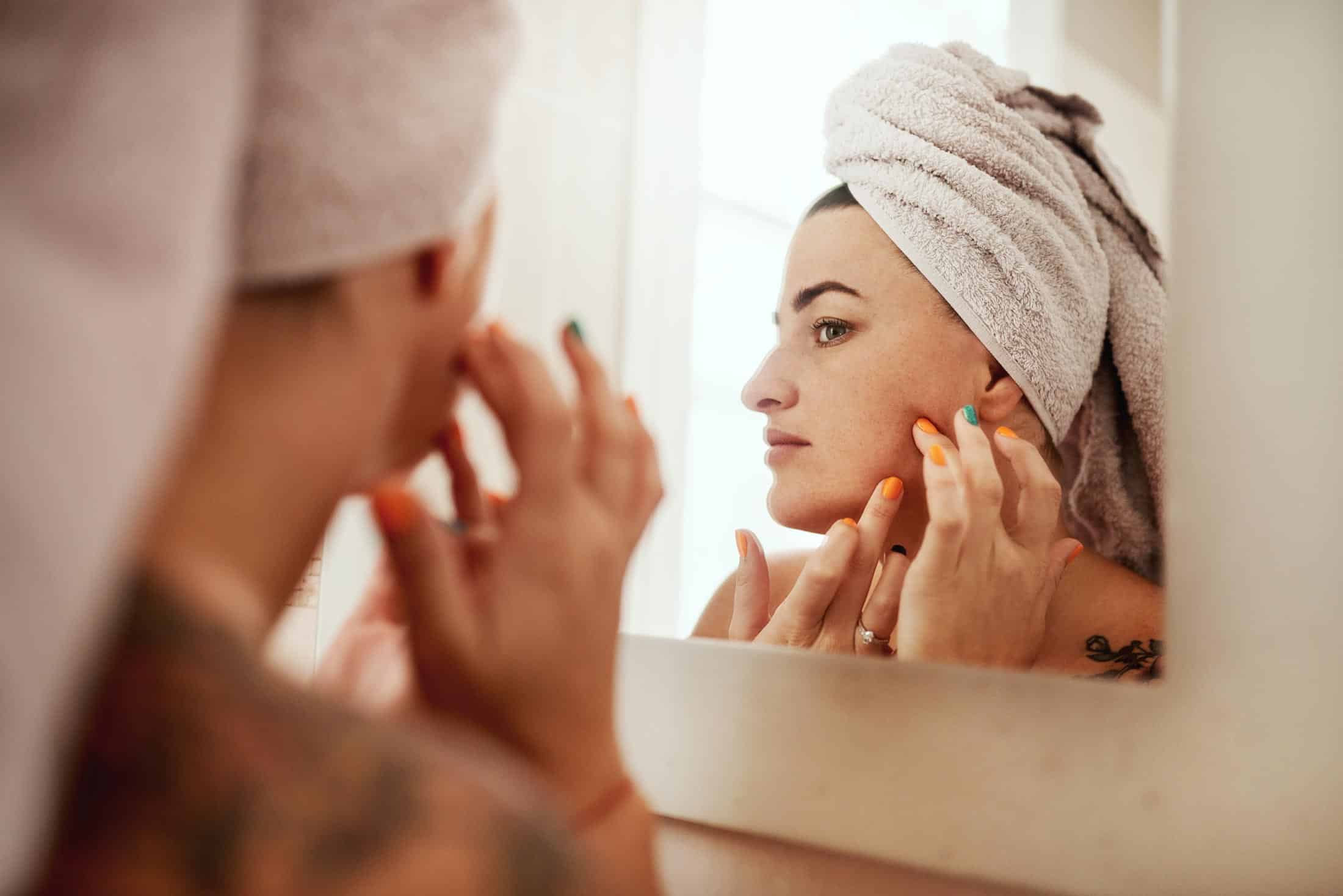Growing numbers of women are dismayed to discover their acne was not limited to high school. Yes, it might seem like a cruel joke, but it’s possible to have pimples and wrinkles at the same time. In fact, 54 percent of women over 25 experience some acne.
What’s behind the rise in problem pimples?
Although we tend to associate acne with adolescent years, many of the factors that contribute to adult
acne, especially in women. Stress and hormonal fluctuations can wreak havoc on our skin – and many women these days do experience that magical combination of
hormonal changes and a stressful lifestyle.
Stress and acne: a vicious cycle
The relationship between stress and breakouts can quickly become a vicious cycle. When our bodies feel stress, our adrenal glands respond by producing more of the stress hormone cortisol, as well as small amounts of testosterone. These cause the oil glands in the skin to produce more sebum, which can raise the risk of skin infections and pimples. Seeing pimples arise can also cause more stress. Popping a pimple can also cause the bacteria within it to spread and cause more acne breakouts.
The emotional and financial burden of adult acne
Finding a solution for adult acne can feel like a quest for the impossible. Consider this: Acne costs Americans an astounding $15 billion a year in related products and services. Perhaps ironically, we seem to be surrounded by skin care marketing that promises to clear up all skin issues and restore a flawless, youthful glow. But many of these products can actually worsen inflammation.
It all adds up to frustration. It’s no wonder that 95 percent of people with acne say the skin condition has affected their lives, with 63 percent citing lower self-confidence.
How can you treat adult acne?
The simple truth is that treatment has to start from within. Instead of seeking a “magic bullet” skin cream, it’s often best to start with a bit of self-reflection. For example, try tracking outbreaks to see if they coincide with your hormonal cycle, with other symptoms, with specific foods, or with stressful periods in your life.
Reduce stress to tackle breakouts
Think of ways you can reduce your stressors. Yoga and meditation have been proven to reduce stress, and ayurvedic tradition holds that many yoga poses can help with acne.
Sleep is one of the most essential parts of stress management. To keep your skin extra fresh while you sleep, make sure your pillow cases are always clean.
The food you eat affects your skin
Much research remains to be done on the impact of diet on acne, but it’s been confirmed that the quality of the food we eat is reflected in our skin. Ultimately, you’re the best test study for which foods affect your complexion, since people can react differently to various foods. Keeping a food diary and reviewing it with your healthcare practitioner is a good starting point.
A sensible approach is to eat a healthy, whole-foods based diet, opting for antioxidant-rich foods whenever possible. Antioxidants can reduce inflammation and destroy harmful free radicals.
Acne creams that work
A traditional approach to acne skin care is quite harsh leaving the skin dry. When the skin is dry you will secrete more oil leaving you more vulnerable to further breakouts. It is best to consider a more gentle approach to skin can. Talk to your healthcare provider for guidance if you are having difficulty finding the right skincare solution. A number of effective remedies are available, but you want to make sure to pick a treatment that works for your particular skin.
Hormonal Adult Acne
Treating adult acne at the root cause can help you deal with this often-frustrating issue in a more permanent way, and often the more stubborn cases come down to a hormonal imbalance. Whether you’re in your 20’s or firmly in perimenopause, working with a Naturopath can help you look at your full hormonal picture, and find the right plan to bring your hormones, and your skin, back in balance.
What worked in high school for clearing up your pimples might not be as effective as an adult, because as we get older the reasons for breakouts change. So if you see pimples developing, remain calm and take a focused look at the lifestyle factors that could be contributing.
If you have done what you can and are ready for professional analysis and guidance on skin-friendly treatments, book an appointment with one of our experienced Naturopathic Doctors. We want you to overcome adult acne so that you can look and feel your best.
Sources
https://www.ncbi.nlm.nih.gov/pmc/articles/PMC5384166/
http://jddonline.com/articles/dermatology/S1545961614P0692X#close
https://www.researchgate.net/publication/308187676_The_Psychosocial_Impact_of_Acne_Vulgaris
https://www.ncbi.nlm.nih.gov/pmc/articles/PMC4884775/


